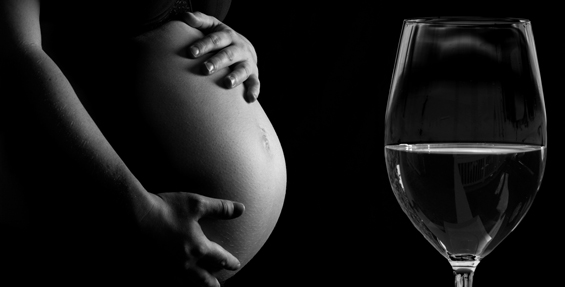SAMHSA FASD Centre for Excellence Specialist concerned about ongoing misperceptions about alcohol use in pregnancy
In the February SAMHSA FASD Centre for Excellence newsletter’s “Ask the Expert” column, FASD Specialist Dan Dubrovsky responds with concern to a January 31, 2014 article in the British newspaper The Telegraph, written by Beverley Turner, journalist and mother of three. In the article, Ms. Turner “candidly admits that she drank alcohol during each of her pregnancies”. However, in response to recent comments by Dr. Neil Aiton, a paediatrician at the Brighton and Sussex University Hospitals, she chose to explore the issue in more depth.

She quotes Dr. Aiton’s clear message: “We have firm evidence that drinking alcohol regularly is damaging,” and that the developing fetus can experience “long-term neurological and psychological damage.” In fact, Dr. Aiton;s comments set off a great deal of controversy in Britain when he said that it is safer to occasionally use cannabis than to use any alcohol during pregnancy. She also refers to the findings of drinkaware.co.uk that alcohol use in pregnancy is the leading known cause of intellectual disability. In Britain, nearly 7,000 babies a year are born with the signs of alcohol-related developmental damage.
In conjunction with the article, The Telegraph ran an online poll on attitudes about alcohol consumption during pregnancy, in which readers were offered the following four options:
- Yes, as long as it’s infrequent and small amounts
- No, why can’t they just abstain for nine months
- No, we don’t know the risks
- Yes, everything within reason is fine.
Of the first 2,000 readers to respond, over 60% selected one of the two ‘yes’ options.
Mr. Dubrovsky is very troubled by these results. He says, “They shine a spotlight on the ongoing misperceptions in the general public about alcohol use in pregnancy. Given the amount of accumulated evidence on the risks to the fetus of prenatal alcohol exposure, and the lifelong impact of FASD, the message needs to be consistent and clear that there is no known amount or type of alcohol that has been proven to be safe to drink at any time during pregnancy.”
This is especially concerning given the statistics demonstrating significant increased use of alcohol overall by women in the U.K. British women are drinking more units of alcohol, more often over the last 30 years. Since 2002 there has been a 91% increase in alcohol-related liver disease hospital admissions for women in England. And this is a broad-spectrum change. Ms. Turner says, “Alcohol concern tells us that adults living in households in the highest income quintile are twice as likely to drink heavily as adults in lowest income quintile – 22% compared to 10%. It is entirely acceptable for ‘middle class’ mums to offer a glass of rose at playdates. I know, because I do it. And that softening of kids, booze and boundaries is a strikingly recent phenomenon born of relaxed licensing laws and a move towards a more ‘European’ drinking culture.” This comment is worth noting as British Columbia moves towards a relaxation of liquor laws.
Beverley Turner points to the realities of people’s lives. “With our first pregnancies, we tend to be more stringent in our choices: less caffeine, the right foods and often, no alcohol at all….But something strange then happens in subsequent pregnancies. You realize your fears about your first baby’s certain demise in your incapable hands didn’t happen. Turns out they are quite resilient.

You ‘need’ caffeine because you’re constantly exhausted; headlines repeatedly contradict each other about how much of any food and drink is ok. You vow to ignore all this and listen to your instincts but your instincts are now drowned out by a screaming toddler; a demanding job; a harried husband and ailing grandparents. So you sit down at the end of the day and tap the armrest like a smoker trying to quit. You miss the comforting ritual as much as the drink itself and decide one won’t hurt….”
Dr Aiton is quoted, “If it is a choice between a drink, a smoke or a spliff the ‘don’t drink’, would be my recommendation. We have firm evidence that drinking alcohol regularly is damaging. Cigarettes cause babies to be born a bit on the smaller side. There is other evidence [of the harm caused by smoking] but it is minor compared to the long-term neurological and psychological damage that alcohol causes to the nervous system [of a foetus].”
While cigarette manufacturers are required to provide information about the harm caused by use of their products, the requirements for alcohol producers are minimal by comparison, and many legislative jurisdictions ask only for voluntary compliance.